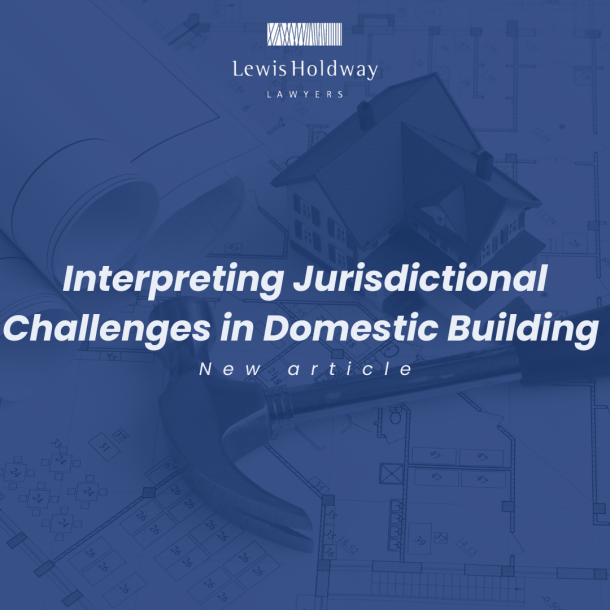
Navigating the Domestic Building Contracts Act 1995
Navigating the Domestic Building Contracts Act 1995:
A Guide for Builders, Tradespeople and Consumers in Victoria
Author: Charlie Beresford
According to research by Consumer Affairs Victoria, approximately 25% of Victorian homeowners face disputes with their builders during construction or renovation projects. Understanding the regulations outlined in the Domestic Building Contracts Act 1995 (Vic) (DBCA) is essential for builders, tradespeople, and consumers to navigate this complex landscape effectively.
What building work is regulated?
The Act regulates a wide range of trades involved in domestic building work, including but not limited to:
Erection, construction, renovation, alteration, extension, improvement, repair, and the demolition or removal of a home.
Associated works such as landscaping, paving, and the erection or construction of fixtures associated to the home such as retaining structures, driveways, fencing, garages, carports, workshops, swimming pools or spas.
Provision of utilities and amenities such as lighting, heating, ventilation, air conditioning, water supply, sewerage, and drainage to the home or the property on which the home is, or is to be built.
Excluded Building Work: Certain activities fall outside the Act’s coverage, including work on farm buildings, buildings intended to be used only for business purposes, design work by architects, and specific tasks like obtaining foundation data or transportation of a building.

Unregulated Trades: You are not regulated by the Act if your contract only involves one of these activities:
– attaching external fixtures such as awnings, security screens, insect screens and balustrades;
– carrying out electrical work;
– glazing;
– installing floor coverings;
– insulating;
– painting;
– plastering;
– tiling (wall and floor);
– erecting a chain wire fence to enclose a tennis court; and
– erecting a mast, pole, antenna, aerial or similar structure.
However, if your contract involves two items on that list, such as painting and plastering, it falls under the regulation of the Act.
Implications of Regulation: Compliance with the DBCA is vital for builders and tradespeople to uphold legal requirements and standards for domestic building contracts. For example, failure by tradespeople to possess insurance coverage for work undertaken can result in penalties, with fines of up to $96,000 for individuals and $480,000 for companies.
Furthermore, adherence to the Act’s provisions safeguards businesses against disputes and legal actions, ultimately protecting their reputation and ensuring client satisfaction.
Protection for Consumers: Under the DBCA, if works are incomplete, damage is caused or defects arise within specified timeframes, consumers can be entitled to have these issues rectified at no additional cost. The Act requires builders and tradespeople to provide consumers with comprehensive information and documentation before entering into a domestic building contract. This includes details regarding the scope of work, timelines, costs, and any applicable insurance coverage.
The key lesson to remember is to document any alterations or verbal instructions by putting them in writing. Doing so significantly increases your protection and the likelihood of achieving a successful resolution.
If we can assist you with a building dispute, or responding to one, please contact charlie.beresford@lewisholdway.com.au or 03 9629 9629.
Copyright © 2021 Lewis Holdway Lawyers. Website Design By LGT Digital







